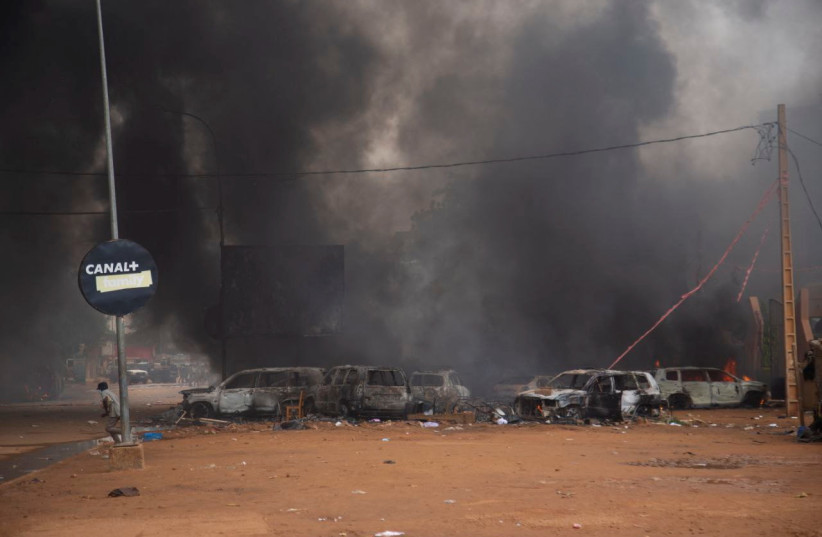Recent events in the Republic of Niger, with the coup d’état against the authority of President Mohamed Bazoum, have attracted remarkable international attention and, in particular, highlighted deepening divisions in global relations that have reached exceptionally high levels.
Personally, I cannot fathom how US Secretary of State Antony Blinken could assure the imprisoned Nigerien president that the United States is committed to restoring the democratically elected government in his country. I wonder if he was implying that the contingent of about 1,000 US troops stationed in Niger to fight terrorism can be counted on to restore Bazoum to his role in cooperation with the affected countries in the region.
Niger is one of the least prosperous countries in the world, but has critical strategic value for several reasons.
Why is Niger so important for the world?
These include its extensive uranium deposits (Niger has one of the largest uranium deposits in the world and is the seventh largest producer worldwide), which supply about 35% of France’s uranium needs. Niger also has significant deposits of high-grade coal, gold, and oil. A complicated $13-billion gas pipeline runs from Nigeria through Niger and Algeria to European countries. This extensive pipeline is expected to supply Europe with about thirty billion cubic meters of gas.
In addition, Niger serves as a central hub for Western counterterrorism efforts in the Sahel. Growing Western concern about African coups has increased in Niger, which has experienced its third coup since 2020, following similar events in Mali and Burkina Faso.

Blinken, who visited Niger in mid-March, stressed the importance of relations with that country in a region where Russian influence is growing rapidly.
The US has increased its humanitarian assistance to countries in this region, providing a total of about $235 million this year. In parallel, there is another US-funded initiative to rehabilitate and reintegrate former fighters of terrorist organizations. Washington hopes that Niger’s experience in this area can serve as a model for neighboring countries struggling with the spread of terrorism.
Following the abrupt withdrawal of French influence in Mali, and against the backdrop of the US government’s drive to expand its influence across Africa as part of the power struggle between China and Russia, the coup in Niger took the West by surprise.
As a neighbor of Mali, which has been transformed from a key counterterrorism ally of France into a country where the Russian Wagner Group is expanding its sphere of influence, the coup in Niger was particularly surprising.
Niger was among the six countries that offered Russia support during the vote on Ukraine at the UN General Assembly in February. The dilemma facing the West in Niger goes beyond the military coup; rather, it is about its consequences, as developments in Mali and Burkina Faso show. These two countries have allied themselves with Russia.
IT IS ALSO about counterterrorism efforts. Niger, in particular, is the main partner for French military operations in West Africa. In addition, an air base operated by the US has been established in central Niger to serve as a launching pad for drones that target jihadists and monitor their activities.
The events in Niger undoubtedly represent a significant setback for the West, particularly France and the US. The growing rejection of Western influence in Africa is gaining momentum, while at the same time new African alliances are developing toward Russia and China.
This is a setback for the West’s efforts to balance the influence of these two countries in the post-Ukraine phase of reshaping the world order.
The series of coups in West Africa is also a challenge for the Economic Community of West African States (ECOWAS), an association of 15 countries. ECOWAS is committed to taking a firm stance against coups, but it has so far struggled to put pressure on the new rulers in Niger, although it has hinted at the possibility of military intervention. The question of whether to intervene militarily in Niger is difficult, given the potential negative consequences and the continuing uncertainty about the prospects for success.
Moreover, the specter of increasing hostility toward France and the Western world in Africa looms, accompanied by accusations of trying to impose a modern form of colonialism on certain African countries.
Moreover, the new heads of state in Mali and Burkina Faso have warned against intervening to support their counterparts in Niger against possible regional or international military involvement, reiterating that such action would be seen as a “declaration of war.” As a result, Western strategies could focus on alternative avenues, including fomenting unrest within Niger’s nascent governance structure and instigating internal upheaval that impedes the building of stability. This would thwart conditions that could make Niger a new ally for Russia in the region.
This explains The Washington Post’s assessment that the US will not tolerate the coup in Niger as it did with previous coups in some African countries. For France, the erosion of its influence in its former colony is a clear indication of the domino effect, reflecting France’s diminishing role and influence in Africa and on the world stage.
The coup in Niger took place just days after Bazoum declined to attend the recent Russia-Africa summit in Saint Petersburg. It is noteworthy that the head of the Wagner Group, Yevgeny Prigozhin, was one of the first to congratulate the coup plotters in Niger. The current developments in Niger are not just a coup, but an intense battle of wills, with the US and France on one side and Russia and China on the other.
The writer is a UAE political analyst and former Federal National Council candidate.
